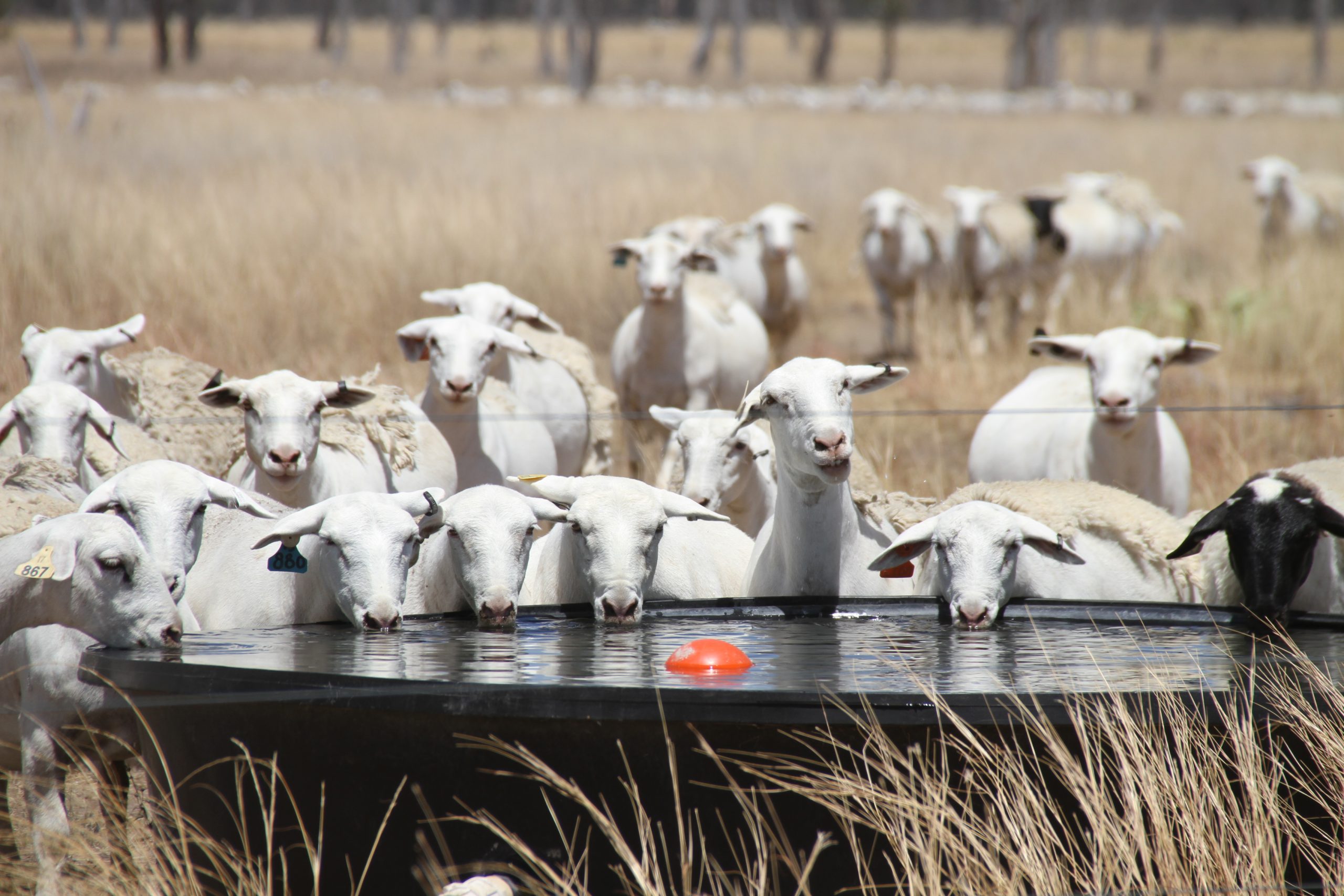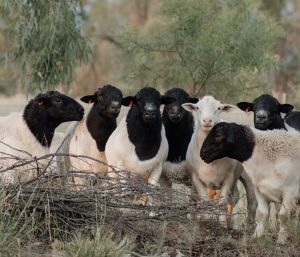
Dorper breeders can use several selection indexes, provided by Sheep Genetics, when selecting animals to improve their flock’s genetic gain.
Of the available selection indexes, the Maternal Carcase Production (MCP) and the Maternal Carcase Production Plus (MCP+) are well suited to maternal based operations including Dorper flocks, as they focus on improving maternal sire performance across reproduction, growth, and carcase traits, whilst aiming to maintain mature size.
The latter selection index, MCP+, is more suited to high rainfall operations or systems where internal parasites may cause significant economic losses.
Selection indexes, such as the MCP, are useful as they balance genetic improvement appropriately across a range of traits, with the emphasis placed on each individual trait determined by its relative importance.
“The benefit of selection indexes including the MCP is that it combines multiple traits into one easy-to-use figure,” said Marnie Hodge, LAMBPLAN Development Officer at Sheep Genetics.
Ms Hodge encouraged producers to view the indexes like a “drafting gate”.
“The first step for any producer aiming to improve your flocks’ genetics merit is to determine your breeding objective,” Ms Hodge said.
“This may include increasing fertility, carcase growth, resistance to parasites and eating quality.
“With your objectives in mind, producers should then rank their animals based on the selection index best suited to their breeding objective.”
Ms Hodge said once all animals have been ranked according to the MCP index, producers can continue the selection process by culling using ASBVs for individual traits that align with their breeding objectives, including any traits of importance that are not in the MCP index like carcase or eating quality ASBVs.
To get the best value out of using an index to make selection decisions for genetic gain, seedstock producers are encouraged to record accurate information about their animals.
By recording animals for traits important to their breeding objective, producers will receive more accurate breeding values which can lead to increased genetic gain.
“It’s really important to record the traits which are important to your breeding objective by taking on farm measurements and entering your sires into reference flocks such as the MLA Resource Flock,” Ms Hodge said.
There are around 50 Dorper and White Dorper flocks who are members of Sheep Genetics, with over 200,000 Dorper and White Dorper animals in the LAMBPLAN evaluation.
The Maternal indexes, including MCP and MCP+, will be the focus of the 2024 Sheep Genetics analysis enhancements. The 2024 Maternal focused analysis enhancements may include reviewing the analysis models and the relative economic values placed on each trait within selection indexes. Sheep Genetics undergoes annual analysis enhancements to ensure that they are providing world-leading genetic evaluation services to clients.
Sheep Genetics continually invests in the research and development for traits important to the Australia sheep industry.
The development of a shedding score ASBV is one such trait that Sheep Genetics is currently in the research stage of the development pipeline.
An ASBV for shedding score is not currently available, however, Sheep Genetics has developed a scoring guide for shedding scores (this may be amended as more information is available) for breeders to commence collection and submission of shedding score data.
Using selection indexes, such as the MCP, and ASBVs to make selection decisions will enable dorper breeders to make genetic gain for traits which are important profit drivers for their business.
For more information about Sheep Genetics, and their available selection indexes (including MCP) contact Marnie Hodge, the LAMBPLAN Development Officer at Sheep Genetics on (02) 8055 1810 or via email mhodge@mla.com.au

2023 DSSA Journal, Page 22 – 23.
CLICK HERE TO DOWNLOAD YOUR FREE DIGITAL COPY OF THE 2023 DSSA MAGAZINE!

